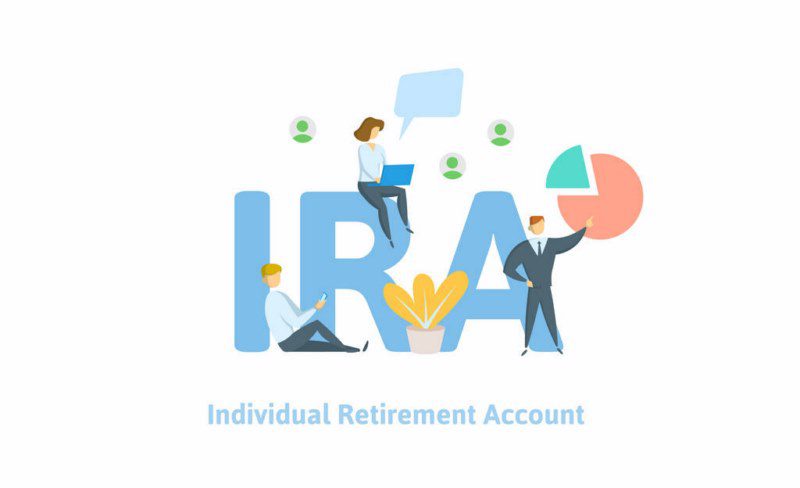Transitioning into adulthood brings a mix of excitement and anxiety around taking control of your own finances for the first time. While the newfound freedom feels energizing, actually establishing responsible money management habits can prove challenging amidst the chaos of advancing careers, evolving relationships, and swelling expenses. However, prioritizing prudent personal finance skills early equips you with lifelong stability. Let’s explore the critical areas for young adults, including budgeting methods, emergency saving goals, retirement investing beginnings, building credit strategically, and sidestepping debt pitfalls. Embrace financial literacy now so money fuels, rather than constrains, your passions.
Mastering Realistic Budgeting
Calculate All True Expenses with Granularity
Comprehensive financial planning for young adults begins with budget clarity, tracking every subscription, membership, loan obligation, and lifestyle expense over a full year, tallying yearly totals. Next, simply divide amounts by 12, deriving accurate monthly averages for smooth, stress-free budgeting goals. This technique straightforwardly normalizes fluctuating, irregular bills into easily managed, steady monthly targets when planning early in adulthood. Master steady monthly expense forecasting now through granular true expenditure calculations so realistic budgeting fuels your dreams rather than financial instability crushing ambitions.
Model Multiple Income Scenarios
Shrewd financial planning for young adults also entails budget modeling for varied income levels – best-case raises or windfalls down to worst-case job losses. Having prepared contingency plans covering different situations builds resilience in your budget and adaptive space to navigate inevitable life changes and uncertainty with reduced panic. Budget consciousness aids in confronting adulthood’s financial fluidity. Inviting potential adversity into your plans when income flexes high or low prevents sudden budget breaking. Explore these budget scenarios now.
Automate Tracking and Alerts with Budgeting Apps
Wise financial planning for adulthood clearly understands manual money tracking proves unsustainably tedious over decades. Hence, leverage web/mobile budget applications automatically aggregating and categorizing all transactions while alerting budget shortfall trends enabling timely course corrections. Applications like Personal Capital, You Need A Budget, or Mint delivers automated mastery so budget consciousness continues fueling, not frustrating, your financial future—Automate drudgery out and insight in. Apps generate effortless money vigilance despite adulthood’s escalating obligations.

Building Emergency Savings and Priority Reserves
Save to Cover 3-6 Months of Basic Living Expenses
Prudent financial planning for young adults entails accumulating liquid emergency savings able to cover 3-6 months of non-discretionary basic living expenses like rent, food, transportation, and other obligations. This buys invaluable time and flexibility to address crises like job losses or illnesses without immediately draining long-term retirement accounts or accruing high-interest credit card debt fueled by panic. Emergency cushions are fundamental for weathering early adulthood’s instability and uncertainty. Build your lifeline now.
Earmark Further Savings for Expected Upgrades
Savvy financial planning for young adults additionally involves proactively designating pooled savings for envisioned medium-term expenditures like moving costs, auto repairs, computer replacements, or future vacations aligned to evolving personal goals. This smoothing creates stability when addressing known transitional purchases life will inevitably require. Earmark-specific savings now so that when adulthood’s anticipated expenses arise, your financial foundation absorbs these non-emergencies smoothly.
Use Online High-Yield Savings to Maximize Returns
Wise financial planning for adulthood also entails shielding savings from inflationary erosion, best accomplished in online high-yield savings accounts offering over 2% returns rather than traditional banks wasting assets at 0.1%. This daily compound interest expands reserves much faster in the long term while retaining easy access to liquidity with minimal risk. Incremental interest adds up substantially over time. Maximize returns to accelerate your fiscal freedom.
Initiating Retirement Investing Habits
Fully Utilize Available 401(k) Accounts and Employer Matching
Essential financial planning for young adults engages any available 401(k) accounts through employers, allowing pre-tax or Roth salary deductions to boost retirement investments. Contribute maximum amounts allowed each year without fail. Additionally, exploit all offered employer matching contributions since these constitute free extra compensation, accelerating retirement readiness. Enroll reflexively, empowering compounded growth’s exponential expansion. Future selves will appreciate today’s savings discipline. This retirement habit forms the foundation of early financial freedom.
Open an IRA If No Workplace Option Exists
If no workplace retirement account exists, prudent financial planning for adulthood opens Individual Retirement Accounts (IRAs) independently. Roth IRAs uniquely offer tax-free growth on maxed contributions, optimizing the time value of Money by lengthening the investment runway through one’s twenties and beyond. Fund IRAs fully each and every year without exception. Early, consistent savings leverage exponential expansion, delivering astronomical returns over long time horizons.
Diversify Broadly with Low-Cost Index Funds
Intelligent financial planning for young adults employs broad stock market index funds alongside bonds in appropriate ratios, maximizing long-term returns while minimizing expenses and volatility risks compared to buying individual stocks. Stay invested through market cycles rather than compromising gains by repeatedly trying to time entry and exit points. Patience and persistence pay substantial wealth dividends. Time and compounding have worked wonders over decades.
Building Credit History and Monitoring Scores
Use Starter Cards to Establish Responsible Habits
Diligent financial planning for young adults applies to starter credit cards like Capital One Platinum or Discover It, tailored for those lacking credit history. New borrowers should use these moderately, paying balances promptly and fully before accruing interest charges. Every bill settled on time builds positive payment reporting critical for credit scores. Early positive reporting helps secure optimal terms for mortgages, insurance rates, and business lines of credit later on. Build those responsible credit habits now.
Check Reports and Scores to Optimize Activity
Proactive financial planning for adulthood requires regularly checking Equifax, Transunion, and Experian credit reports to quickly dispute any inaccuracies negatively skewing credit scores. Monitoring also identifies incremental score improvements to establish better loan rates over time for large purchases like houses or cars. Annual credit reports and score audits enable strategic planning, so continual personal optimization becomes second nature as life advances. Don’t delay.
Recognize Hard Check Impacts When Minimizing Denials
Informed financial planning for young adulthood recognizes that each credit card or loan application triggers “hard credit checks,” temporarily depressing scores slightly. Therefore, strategically space requested credit lines over time, limiting clustered applications signaling risk while also allowing hard check impacts to fade between requests. This balancing act aims to minimize credit denials through financial literacy, guiding responsible credit-building behavior. Learn while building.

Avoiding Early Debt Dependency Dangers
High-Interest Debt Transfers Wealth Rapidly
Astute financial planning for young adults scrutinizes offered credit cards, payday loans, auto titles, and retail financing since these often charge notoriously high-interest rates when balances go unpaid. These severe rates exponentially compound debt, rapidly transferring borrowers’ hard-earned wealth back to lending institutions. Completely avoid it if possible. If already accrued, repay high-interest balances promptly, consistently, and without fail to halt wealth drainage.
Student Loans Restrict Career Flexibility for Decades
Informed financial planning around student debt acknowledges that while further education enables higher income potential in the long term, excessive loans require extremely strained decade-long repayment. This straight jackets career options, reducing latitude to freely change jobs or locations that may offer less compensation but better alignment to personal fulfillment apart from Money. Borrow conservatively, only absolutely mandatory amounts to complete college or higher degrees. Preserve flexibility.
Scrutinize Predatory Lending Contracts and Pitfalls
Diligent financial planning for adulthood carefully analyzes any loans offered, even from “trusted” mainstream banks, scrutinizing how interest calculations and long-run obligations compound over agreements. Opaque or dishonest terms hide ballooning loan payments, encouraging dependency. Build literacy separating persuasive marketing incentives from actual contractual fine print realities. Financial comprehension is the first defense against predatory lending and its sly wealth transfers.
Financial Planning for Young Adults -Conclusion
Conscientious financial planning for young adults recognizes that money mastery, not mystery, is the surest path toward lifelong stability and options. Hence, urgency exists in establishing prudent budgeting, emergency saving, and growth investing habits now in your twenties rather than delaying. Additionally, wisely utilize starter credit cards to responsibly build a positive history free of destructive debt dependencies. Avoid seductive loans promising temporary relief but guaranteeing long-term entanglement, transferring hard-earned wealth to lenders through exponential interest charges. Financial literacy is the first step – knowing terms and calculating impacts.
Forge fiscal fluency now, embracing financial mindfulness and overcoming paralysis surrounding personal finance confusion. Money optimally evolves into a launch pad towards reclaiming passions separate from economic necessity rather than shrinking possibilities because of unchecked fiscal threats constantly looming. Punch fear of money matters in the face through ongoing learning. Confidently recognize personal finance as a lifelong journey rather than some instantly mastered skill. There is too much at stake not to commit fully equipping yourself, including future freedoms, to fearlessly change careers, locations, or lifestyles. Savvy financial planning for young adults unlocks doors where Money facilitates flourishing aligned with fulfillment.
The path toward financial freedom begins with a single step. Start your enriching money management journey now. Passive inaction is the only unacceptable option. Seize control of your financial destiny one small money victory at a time. Future abundance awaits those taking ownership today.
Where do I even start learning personal finance for adulthood?
It all seems overwhelming! A: Begin with budgeting – simply track all expenses for 1-2 months, categorize amounts, find waste, align with income levels, and optimize accordingly. This knowledge then informs more brilliant saving and goal setting. Take it step by step rather than getting intimidated by information overload upfront.
How much should I have already saved by age 25?
Ideal benchmarks aim for 3-6 months of basic living expenses in emergency savings alongside contributing at least 10% towards retirement accounts and further discretionary goal savings. However, everyone progresses financially at different paces. Don’t get discouraged compared to others – focus on continually improving your own money management rather than attaching to fixed milestones.
What percentage of income should go towards “fun spending”?
General advice suggests capping entertainment expenses around 5-10% of net pay, which includes dining out, vacations, hobbies, etc. But no fixed rules exist. Set your fun spending aligning with financial priorities and budget tradeoffs. As income grows, allocate more towards passions if managed prudently.
Can I ever splurge with friends, or should I pinch pennies?
Occasional responsible splurges that align with financial goals are perfectly healthy rather than 100% restrictive frugality. Build these assumed expenses into your budget. Problems arise when overly frequent or irrational spending derails other important priorities like debt payments, saving goals, or investments. Master balance.
How often should I check retirement accounts when the market fluctuates daily?
Retirement investing works best “set and forget.” Checking balances daily breeds needless panic from typical market volatility. Aim just to rebalance allocations maybe 1-2 times per year. Stay the course rather than get distracted by daily changes—time and compound growth smooth short-term fluctuations over decades.

